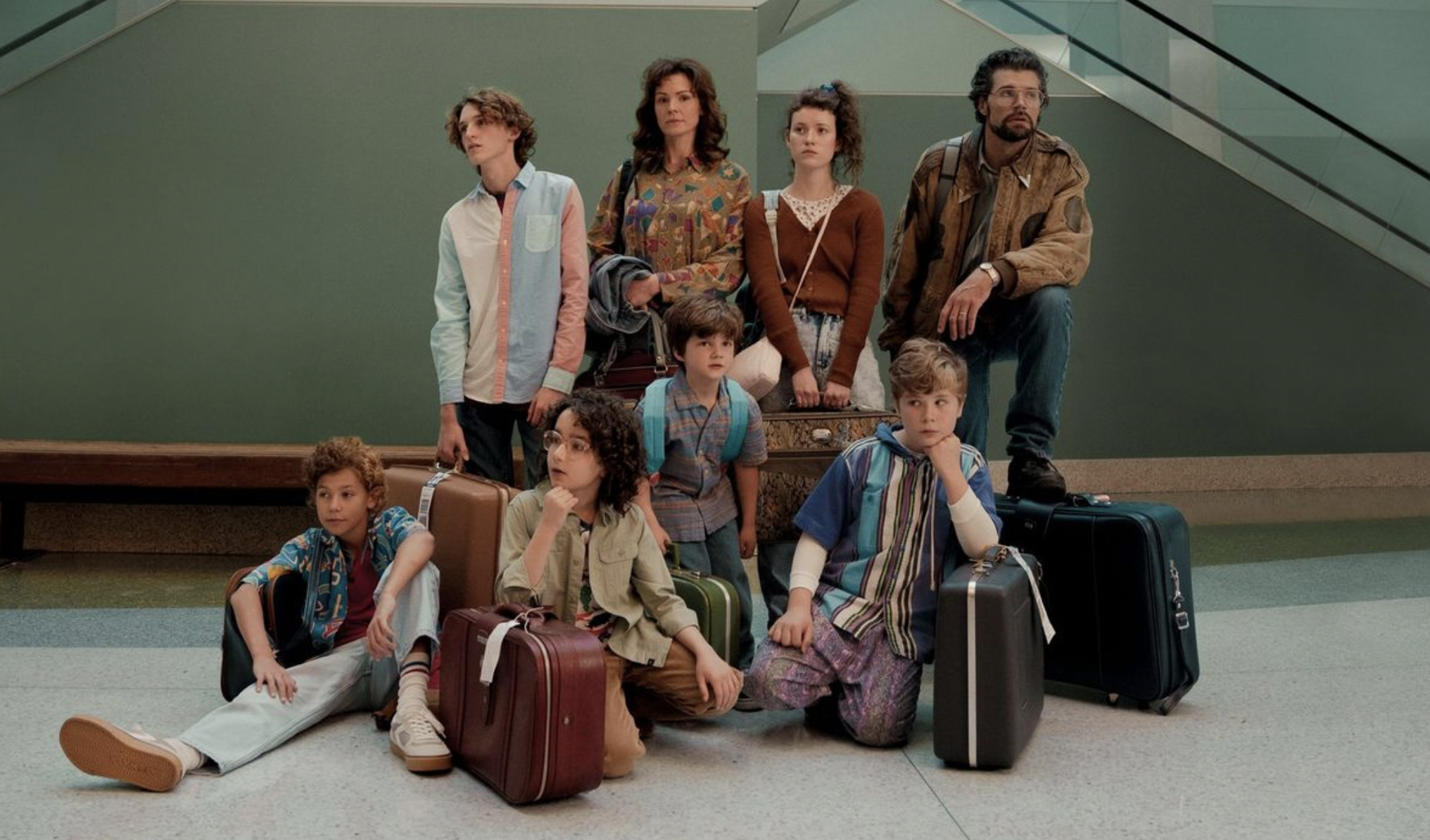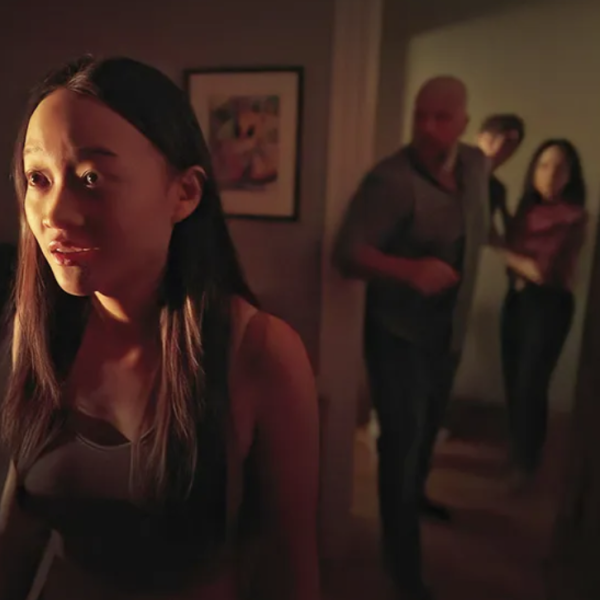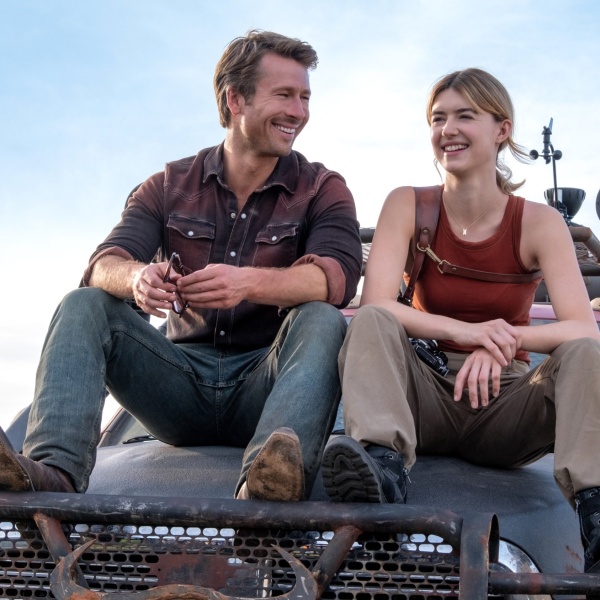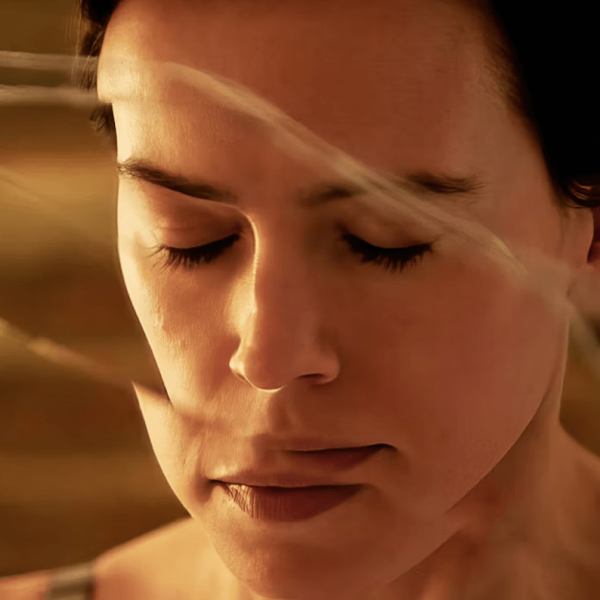Titans of the faith-based filmmaking industrial complex they helped to create, Kingdom Story Company founders Andrew and Jon Erwin built their brand on the Christian rock biopics “I Still Believe” and “I Can Only Imagine,” ultra-benign stories of faith, loss, and profit that rely on powerful songwriting to compensate for sermon-like storytelling, and frame their subject’s artistic success as both a testament to their faith and a megaphone for the word of Jesus Christ. Absent the rigor or artistry of secular comps like “Love & Mercy” and “Coal Miner’s Daughter” (but also absent the Wikipedia-driven ghoulishness of more recent examples like “Bohemian Rhapsody” and “I Wanna Dance with Somebody”), these movies are happy to function as feature-length commercials for the musicians they were made to honor, just as they’re happy to offer halos to the people who inspired them.
That’s a key feature of cinematic evangelism, not an inadvertent bug: Kingdom Story content glorifies its characters as an act of service to God. That’s true even if those characters are family to the film’s director. Hell, apparently that’s true even if one of those characters is the film’s director (who also casts himself in the lead role). In any other genre, For King & Country frontman Joel Smallbone’s “Unsung Hero” might seem vain enough to make the entire project feel like an ego trip — a self-obsessed work of idol worship so moved by its own gospel that it threatens to violate the Second Commandment.
But this glossy, anodyne, and perfectly watchable memoir isn’t the least bit sheepish about taking pride in itself, despite the fact that pride is the root source of the movie’s dramatic conflict (such as it is), and despite the fact that “Unsung Hero” climaxes with concert footage of Smallbone’s band as their titular single — a soaring and beautiful ode to Smallbone’s mother — booms over the soundtrack atop a bed of heavenly strings.
In part, Smallbone gets away with it because this entire film is a tribute to his parents, who lost “everything” during the recession that gripped Australia in the early 1990s, and relocated their six-and-a-half children from Sydney to Nashville in a desperate bid to make it in the music business.
But the more relevant point is that Smallbone refuses to accept that there’s anything to get away with; it’s his sacred duty to preach the promise that strong faith, an even stronger wife, and the cleansing power of Christian rock are enough to see anyone through life’s hardships. There isn’t much of a story here, but that message comes through all the same.
Co-directed by Kingdom Story Company executive Richard Ramsey, “Unsung Hero” introduces us to the Smallbone family as they’re stuck in customs at LAX, the government agents eyeing the “Australian von Trapps” with an exaggerated suspicion that subtly hammers the movie’s persecution complex into place (won’t somebody think of the lost and adorable white Christian brood who look they just stumbled out of a JCPenney catalog?). Which isn’t to say they don’t earn our sympathy, or to downplay the remarkable accuracy of Katherine Tucker’s airport set (her artistry confirmed by one of the archival photos we see during the closing credits).
Flying halfway around the world with six kids is the kind of trial that Job himself might not have survived, and the fact that stay-at-home mom Helen Smallbone (Daisy Betts) is already pregnant with her seventh only makes the arduous trek that much harder. In hindsight (and flashbacks), Helen’s music promoter husband David — Joel Smallbone, playing his own father — probably could have picked a better time to stake his fortune on an Amy Grant tour that nobody came to see.
Desperate to continue providing for his family, David leaps at a shaky handshake job offer in Music City, and convinces Helen to accept a two-year trial stint in America. David’s father (Terry O’Quinn, whose “Lost” character once visited Australia) cautions his overworked son that family is the greatest fortune a man could ever have, but the dictums of this film’s genre demand that David has to learn that lesson the hard way. So long palatial Sydney mansion, hello cramped Nashville rental.
Co-written by Ramsey and Smallbone, the script certainly doesn’t blame him for that. Its clunky dialogue is full of feel-good bromides about how “life is an adventure,” and even David’s workaholism is forgiven with an uncritical line that likens promoting Christian rock acts to connecting people with a higher power. All the same, the square-jawed and fierce-eyed Smallbone — who’s previously complemented his music career with acting roles in other faith-based films like “Journey to Bethlehem” — plays his father with requisite frustration and trace amounts of pigheadedness, leaving the saintly Helen to hold them all together. Her dream in life was to have a great big family, and since “Unsung Hero” neglects to interrogate Helen’s ambivalence towards that accomplishment, we’re left to assume that she’s already got everything she wanted. Unless, of course, David manages to screw it up.
Some things are out of his control. The deal falls through, depriving the Smallbone family of the money they need to buy a car, which puts a pretty big crimp on how far they can make it in suburban America. But God works in mysterious ways, and the upstart lawn care business David starts with his kids eventually finds him cutting grass for Eddie DeGarmo (Jonathan Jackson), the same ultra-successful musician and producer whose Australian tour David thought he was too good to promote.
Alas, David is too proud to beg, or to let his angel-voiced daughter Rebecca (Kirrilee Berger) ask DeGarmo for an audition. He’s already feeling cucked by the incredible charity his family has received from a pair of rich Christian stereotypes played by Lucas Black and Candace Cameron Bure (“I think God wants us to give you our van”), and too humiliated by his circumstances to recognize his role in the parable of the drowning man. Sometimes you’re so busy waiting for God you fail to recognize when they come to you disguised as the lead actor from the best “Fast & Furious” movie and the devout wife of the worst Bure sibling (at least so far as his NHL stats are concerned). Miracles are everywhere for those with eyes to see, or ears to listen.
Smallbone’s film lacks the curiosity and resolve to meaningfully explore the nuances of David’s pride, or to effectively dramatize his inevitable triumph over it (Black’s character is all but written out of the movie after David snaps at him), and the last 40 minutes of this “unhurried” two-hour drama soften into a complete slog as David mopes around in search of his big come to Jesus moment. Berger’s stirring vocals ultimately allow “Unsung Hero” to make good on grandpa Smallbone’s promise that “family isn’t in the way, they are the way,” but the frictionless road it takes to get here wouldn’t be worth the trip if not for the little things it does right along the way.
That starts with the casting of the Smallbone kids, whose hokey dialogue doesn’t stop them from feeling like a fully believable family unit — their resemblances to each other are uncanny. It continues with a series of effective grace notes, many of them subtler than what movies of this genre typically demand or allow for; even an agnostic Jew like me was touched by how the Smallbone family, alone in a foreign country with so much as a friend to help them, finds a latent sense of home from attending a local church service. And cinematographer Johnny Derango helps to ensure that the film’s more prosaic moments — of which there are many — are endowed with the same ambient vitality, as the active camerawork and careful framing invite audiences to look for truth in the kind of story that tends to just shove it in your face.
Is your family what really makes you rich in life? “Unsung Hero” doesn’t really have the answer to that question, but it convincingly argues that making a hit movie about them wouldn’t hurt.
Grade: C+
Lionsgate will release “Unsung Hero” in theaters on Friday, April 26.





